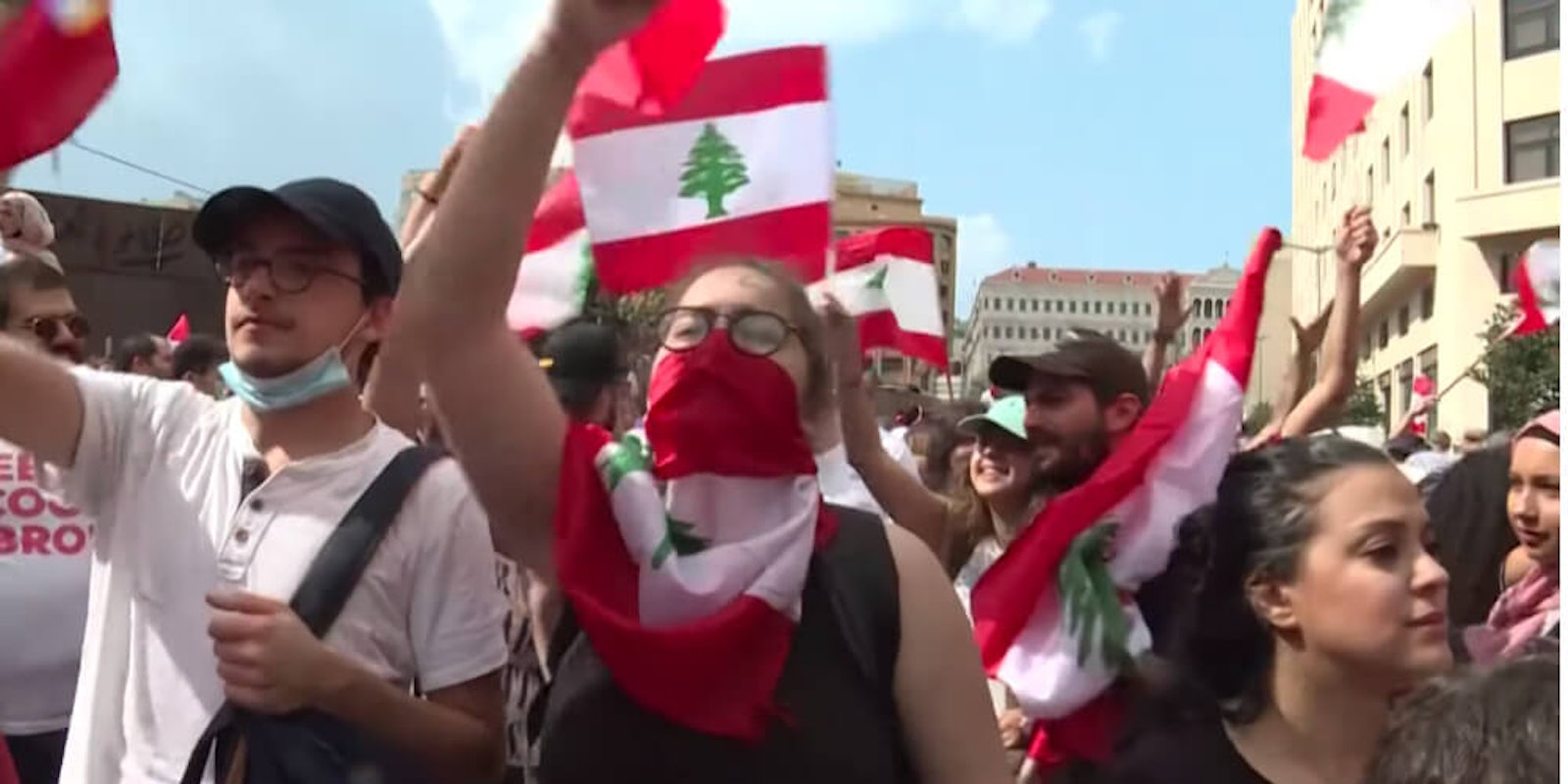The streets of Lebanon were filled with protesters for a fourth consecutive day on Sunday after a proposed tax on WhatsApp calls proved to be the final straw for the country’s corruption-weary citizens.
Tens of thousands of people are marching in major cities such as Beirut in protest of financial hardships they say were brought on by the country’s rulers. Two people have so far died as a result of a fire that spread to a building near the Beirut protests.
The protests in Lebanon may be sparked by the proposed tax on Whats App, but it is a culmination of a shortage of bread, fuel, basic goods & services, and comes a week after the worst wildfires in decades. I sure do hope, people put politics & religion aside & demand dignity. pic.twitter.com/RkMdoeGhWL
— AHMED | أحمد (@ASE) October 18, 2019
Although the protests quickly led the government to pull the WhatsApp plan, which would have imposed a 20 cent a day tax for calls, the damage had already been done. The protesters are now revolting against government corruption and poverty.
The protests have seen a rare alliance between numerous religious groups, all of which are concerned about the country’s future.
“This country is moving towards total collapse,” 32-year-old Mohammad Awada told Reuters. “This regime has failed to lead Lebanon and it must be toppled and replaced.”
The best name to give this wave of demonstrations in #Lebanon, it shall be the #WhatsApp_uprising, Lebanese had all reasons to protest, yet it was the decision to apply taxes on VOIP apps that pissed people off pic.twitter.com/6HUYYViL2y
— Ali Hashem علي هاشم (@alihashem_tv) October 17, 2019
Streets were blocked off with burning tires and some banks’ windows have been smashed. Demonstrators have been seen donning everything, from flags to Joker-inspired face paint.
https://twitter.com/roopnayandarak/status/1185891842283278337?s=20
Lebanon’s finance minister has since announced a new budget plan that does not include any new taxes. But the promises may be too little, too late.
The country’s younger generation also expressed hopelessness over their economic future in Lebanon.
“We are protesting because we don’t want to emigrate,” 21-year-old student Fadi Dhaher told Reuters. “They are pushing us to leave our country.”
Live from Beirut, Lebanon in the anti-government protests that were triggered by an absurd government attempt to add taxes to WhatsApp!
— Hadi Nasrallah (@HadiNasrallah) October 18, 2019
Lebanese forces fired tear gas on the Lebanese civilians protesting corruption.
The Lebanese regime lost its legitimacy.
Stay strong Lebanon pic.twitter.com/UWLDpriFNa
The demonstrations caused four members of a Christian political party to resign late Saturday, with one of the officials telling Al Jazeera that his group had “lost faith in the government’s ability to effect change and address the problem.”
Mass demonstrations against raising taxes and cost of living have continued in #Lebanon. It all started from decision by the #Lebanese government to dissolve Internet calls/WhatsApp. They quickly returned from the decision but the horses were already out of the stable pic.twitter.com/OYe3cA4mPP
— Middle East Update (@islamicworldupd) October 19, 2019
Citizens are still demanding, however, that the government’s main political leaders step down.
WhatsApp is one of the most popular communication methods in Lebanon and has a global user base of roughly 1.5 billion people.
READ MORE:
- The rise of Lebanon’s rebel bloggers
- Everything you need to know about WhatsApp
- ‘From Facebook’ will be added to Instagram and WhatsApp’s names
H/T BuzzFeed News


